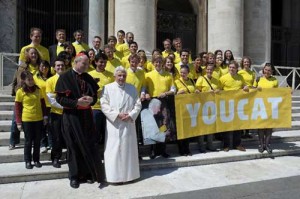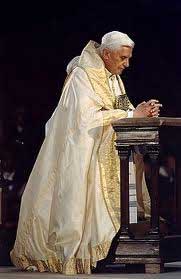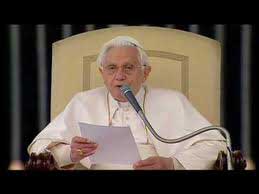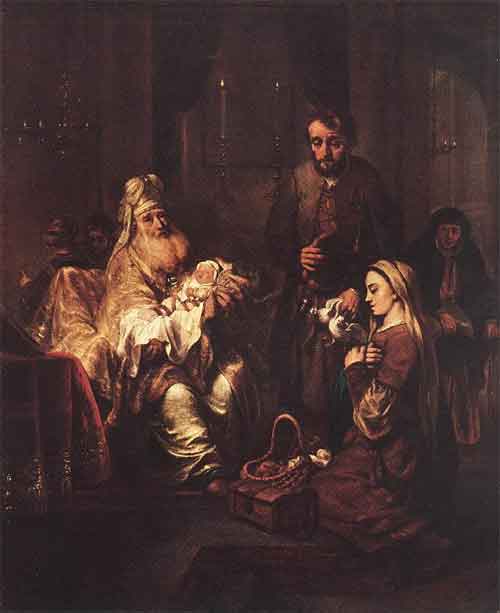It’s great to be joined once again by Mark Brumley! Â This time we discuss YOUCAT, an engaging a catechism designed for a youthful 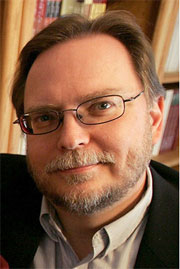 audience. Â I say “youthful” because it appeals to seekers in all age groups. Â Bright in design, filled with questions and answers, and thoughtful in its presentation of doctrine, Â YOUCAT, on every page, brings the faith alive. Â A fantastic resource for every home…a perfect gift for confirmation kids and adults alike. Â Especially in the light of the challenges facing the Catholic faith in today’s world, we talk with Mark the need for this particular resource.
audience. Â I say “youthful” because it appeals to seekers in all age groups. Â Bright in design, filled with questions and answers, and thoughtful in its presentation of doctrine, Â YOUCAT, on every page, brings the faith alive. Â A fantastic resource for every home…a perfect gift for confirmation kids and adults alike. Â Especially in the light of the challenges facing the Catholic faith in today’s world, we talk with Mark the need for this particular resource.
[powerpress]
 You can find out more here
You can find out more here
What Pope Benedict XVI has to say about the YOUCAT project:
“Study this Catechism with passion and perseverance. Make a sacrifice of your time for it! Study it in the quiet of your room; read it with a friend; form study groups and networks; share with each other on the Internet. By all means continue to talk with each other about your faith.”
Tags: catechism of the catholic church, catholic, catholic podcast, catholic prayer, cathollc spirituality, faith, mark brumley, pope benedict xvi, YOUCAT, youthful audience
This entry was posted on Friday, May 11th, 2012 at 8:37 am
You can follow any responses to this entry through the RSS 2.0 feed.
Vatican City, 2 May 2012 (VIS) – 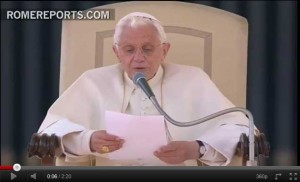
The prayer of St. Stephen, the first Christian martyr, was the theme of the Holy Father’s catechesis during his general audience this morning.
Addressing more than 20,000 faithful filling St. Peter’s Square, the Pope explained how, according to the narrative of the Acts of the Apostles, Stephen was taken before the Sanhedrin accused of having declared that Jesus would destroy the Temple and change the customs handed down by Moses. In his address before the council Stephen explained that, in saying these things, Jesus had been referring to His body, which was the new temple. In this way, Christ “inaugurated the new worship and, with the offer of Himself on the cross, replaced the ancient sacrifices”, Benedict XVI said.
Stephen wished to show that the accusation of subverting the Law of Moses was unfounded, to which end he outlined his view of the history of salvation, of the covenant between God and man. “Thus”, the Holy Father explained, “he reread the entire biblical narrative to show that it led to the ‘place’ of God’s definitive presence, which is Jesus Christ and in particular His passion, death and resurrection. Stephen interpreted his status as a disciple of Jesus in the same light, … following Him to martyrdom. Thus, meditation upon Sacred Scripture helped him to understand … the present”.
“In his meditation upon God’s action in the history of salvation” the proto-martyr “highlighted the perennial temptation to reject God and His acts, and affirmed that Jesus is the Just One announced by the prophets. In Him, God made Himself definitively and uniquely present: Jesus is the ‘place’ of true worship”.
Stephen’s explanations and his life were interrupted by his stoning, yet “martyrdom was the culmination of his life and message, because he became one with Christ. Thus his meditation upon the action of God in history, on the divine Word which was entirely fulfilled in Jesus, became a form of participation in Christ’s prayer on the cross”.
The moment of Stephen’s martyrdom “again revealed the fruitful relationship between the Word of God and prayer”, the Pope said. Yet “where did this first Christian martyr find the strength to face his persecutors and to make the ultimate gift of self? The answer is simple: in his relationship with God, in his communion with Christ, in meditating upon the history of salvation, in witnessing the action of God which reached its apex in Jesus Christ”.
St. Stephen believed that Jesus was “the Temple, ‘not made by human hands’, in which the presence of God the Father came so close as to enter our human flesh, bringing us to God and opening the doors of heaven for us. Our prayer must, then, be contemplation of Jesus sitting at the right hand of God, of Jesus as Lord of our daily life. In Him, under the guidance of the Holy Spirit, we too can address God … with the trust and abandonment of children who turn to a Father Who loves them with an infinite love”.
Tags: catholic, catholic podcast, catholic prayer, cathollc spirituality, jesus christ, pope benedict, pope benedict xvi, scripture, st. stephen
This entry was posted on Thursday, May 3rd, 2012 at 7:40 am
You can follow any responses to this entry through the RSS 2.0 feed.
Vatican City, 18 April 2012 (VIS) – Returning to a recent series of catecheses on the theme of prayer, Benedict XVI dedicated his general audience this morning to what has been called the “Little Pentecost”, an event which coincided with a difficult moment in the life of the nascent Church.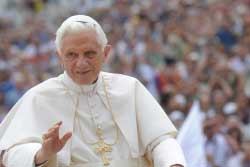
The Acts of the Apostles tell us how Peter and John were released from prison following their arrest for preaching the Gospel. They returned to their companions who, listening to their account of what had happened, did not reflect on how to react or defend themselves, or on what measures to adopt; rather, “in that moment of trial they all raised their voices together to God”, Who replied by sending the Holy Spirit.
“This was the unanimous and united prayer of the whole community, which was facing persecution because of Jesus”, the Pope explained. It involved the community “because the experiences of the two Apostles did not concern only them, but the entire Church. In suffering persecution for Jesus’ sake, the community not only did not give way to fear and division, but was profoundly united in prayer”.
When believers suffer for the faith, “unity is consolidated rather than undermined, because it is supported by unshakeable prayer. The Church must not fear the persecutions she is forced to suffer in her history, but must trust always, as Jesus did in Gethsemane, in the presence, help and strength of God, invoked in prayer”.
Before trying to understand what had happened the first community sought to interpret events through the faith, using the Word of God. In the Acts of the Apostles St. Luke notes how the community of Jerusalem began by invoking God’s greatness and immensity. Then, using the Psalms, those early Christians recalled how God had acted in history alongside His people, “showing Himself to be a God Who is concerned for human beings, Who does not abandon them”, Benedict XVI said. Subsequently the events were read “in the light of Christ, Who is the key to understanding all things, even persecution. The opposition to Jesus, His passion and death were reread … as the accomplishment of the plan of God the Father for the salvation of the world. … In prayer, meditating on Sacred Scripture in the light of the mystery of Christ helps us to interpret current reality as part of the history of salvation which God enacts in the world”.
Thus the plea the first Christian community of Jerusalem made to God in prayer was not “to be defended, to be spared from trials or to enjoy success, but only to be able to proclaim … the Word of God frankly, freely and courageously”. The community also asked that “their proclamation be accompanied by the hand of God so that healing, signs and wonders could be accomplished. In other words, they wanted to become a force for the transformation of reality, changing the hearts, minds and lives of men and bringing the radical novelty of the Gospel”.
“We too”, the Holy Father concluded his catechesis, “must bring the events of our daily lives into our prayer, in order to seek their most profound significance. And we too, like the first Christian community, allowing ourselves to be illuminated by the Word of God and meditating on Sacred Scripture, may learn to see that God is present in our lives, even at moments of difficulty, and that everything … is part of a plan of love in which the final victory over evil, sin and death is truly is that of goodness, grace, life and God”.
Tags: catholic, catholic podcast, catholic prayer, cathollc spirituality, pope benedict xvi
This entry was posted on Wednesday, April 18th, 2012 at 8:26 am
You can follow any responses to this entry through the RSS 2.0 feed.
[powerpress] Â Msgr. Esseff reflects on Pope Benedict XVI’s Easter message. Â 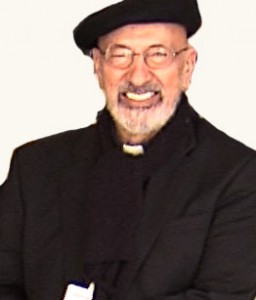 The more we aware of our death, the more we are aware of the resurrection! Â In a time were the darkness seems to be spreading, Christ is the brightest
The more we aware of our death, the more we are aware of the resurrection! Â In a time were the darkness seems to be spreading, Christ is the brightest  light of Truth shining shining in our times! Â We are called to be bearers of the light to the world. Â How do we do that? Â It is not “I” who will do it…but Christ who will accomplish the will of the Father through our surrender to Him.
light of Truth shining shining in our times! Â We are called to be bearers of the light to the world. Â How do we do that? Â It is not “I” who will do it…but Christ who will accomplish the will of the Father through our surrender to Him.
Be sure to visit Msgr. Esseff’s website: Â “Building A Kingdom of Love“
Tags: catholic, catholic podcast, catholic prayer, cathollc spirituality, Christ, Easter message, John Esseff, pope benedict xvi
This entry was posted on Sunday, April 8th, 2012 at 11:40 am
You can follow any responses to this entry through the RSS 2.0 feed.
Vatican City, 14 March 2012 (VIS)– During his general audience this morning the Holy Father began a new cycle ofcatecheses, dedicated to the subject of prayer in the Acts of the Apostles and the Letters of St. Paul. The Pope focused his remarks today on the figure of Mary as she appears in the Acts, when with the Apostles she awaits the coming of the Holy Spirit.Benedict XVI told the more than 10,000 pilgrims gathered in St. Peter’s Square that “it was with Mary that Jesus’ earthly life began, and it was with her that the Church took its first steps. … She discreetly followed her Son’s journey during His public life, even unto the foot of the cross. Then, with silent prayer, she continued to follow the progress of the Church”, he explained.The stages of Mary’s own journey from the house of Nazareth to the Upper Room of Jerusalem “were marked by her capacity to maintain an ongoing state of contemplation, meditating upon each event in the silence of her heart, before God. The Mother of God’s presence with the Eleven after the Ascension … has great significance because with them she shared the most precious of things: the living memory of Jesus in prayer”.After Jesus’ Ascension to heaven, the Apostles met with Mary to await the gift of the Holy Spirit, without which it is not possible to bear witness to Christ. “She, who had already received the Spirit in order to generate the incarnate Word, shared the entire Church’s expectation of the same gift. … If it is true that there could be no Church without Pentecost, it is also true that there could have been no Pentecost without the Mother of Jesus, because she had a unique knowledge of what the Church experiences every day by the action of the Holy Spirit”.
The Pope went on to recall how the Vatican Council II Dogmatic Constitution “Lumen gentium” had emphasised this special relationship between the Virgin and the Church. “We see the Apostles before the day of Pentecost ‘constantly devoting themselves to prayer, together with certain women including Mary the mother of Jesus'”, he said. “Mary’s place is in the Church, ‘wherefore she is hailed as a pre-eminent and singular member, … and as its type and excellent exemplar in faith and charity’.
“Venerating the Mother of Jesus in the Church means, then, learning from her how to become a community of prayer“, the Holy Father added. “This is one of the essential aspects of the first description of the Christian community given in the Acts of the Apostles”.
Our prayers “are often dictated by difficult situations, by personal problems which cause us to turn to the Lord in search of light, comfort and aid. But Mary invites us to open prayer to other dimensions, to address God not only in moments of need and not only for ourselves, but unanimously, perseveringly, faithfully and with ‘one heart and soul'”.
Benedict XVI also pointed out that Mary “was placed by the Lord at decisive moments of the history of salvation, and she always responded with complete readiness as a result of her profound bond with God matured through assiduous and intense prayer. … Between the Ascension and Pentecost, she was ‘with’ and ‘in’ the Church, in prayer. Mother of God and Mother of the Church, Mary exercises her maternity until the end of history”.
The Pope concluded by saying that “Mary teaches us the need for prayer and shows us how only through a constant, intimate and complete bond of love with her Son can we courageously leave our homes … to announce the Lord Jesus, Saviour of the world”.
Tags: blessed virgin mary, catholic, catholic podcast, catholic prayer, cathollc spirituality, pope benedict xvi
This entry was posted on Wednesday, March 14th, 2012 at 4:14 pm
You can follow any responses to this entry through the RSS 2.0 feed.
Vatican City, 7 March 2012 (VIS) – During his general audience this morning Benedict XVI concluded a series of catecheses dedicated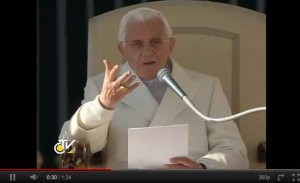 to the prayer of Jesus. Today he turned his attention to the theme of alternating words and silence which characterised Christ’s earthly life, above all on the Cross, and which is also significant in two aspects of our own lives.
to the prayer of Jesus. Today he turned his attention to the theme of alternating words and silence which characterised Christ’s earthly life, above all on the Cross, and which is also significant in two aspects of our own lives.
“This principle”, the Holy Father went on, “holds true for individual prayer, but also for our liturgies which, to facilitate authentic listening, must also be rich in moments of silence and of non verbal acceptance. … Silence has the capacity to open a space in our inner being, a space in which God can dwell, which can ensure that His Word remains within us, and that love for Him is rooted in our minds and hearts, and animates our lives”.
 The Pope then turned to focus on the second important aspect of the relationship between silence and prayer. “In our prayers”, he said, “we often find ourselves facing the silence of God. We almost experience a sense of abandonment; it seems that God does not listen and does not respond. But this silence, as happened to Jesus, does not signify absence. Christians know that the Lord is present and listens, even in moments of darkness and pain, of rejection and solitude. Jesus assures His disciples and each one of us that God is well aware of our needs at every moment of our lives”.
The Pope then turned to focus on the second important aspect of the relationship between silence and prayer. “In our prayers”, he said, “we often find ourselves facing the silence of God. We almost experience a sense of abandonment; it seems that God does not listen and does not respond. But this silence, as happened to Jesus, does not signify absence. Christians know that the Lord is present and listens, even in moments of darkness and pain, of rejection and solitude. Jesus assures His disciples and each one of us that God is well aware of our needs at every moment of our lives”.
“For us, who are so frequently concerned with operational effectiveness and with the results … we achieve, the prayer of Jesus is a reminder that we need to stop, to experience moments of intimacy with God, ‘detaching ourselves’ from the turmoil of daily life in order to listen, to return to the ‘root’ which nourishes and sustains our existence. One of the most beautiful moments of Jesus’ prayer is when, faced with the sickness, discomfort and limitations of his interlocutors, He addresses His Father in prayer, thus showing those around him where they must go to seek the source of hope and salvation”.
Christ touches the most profound point of His prayer to the Father at the moment of His passion and death, Pope Benedict said. And citing the Catechism of the Catholic Church he concluded by noting that “His cry to the Father from the cross encapsulated ‘all the troubles, for all time, of humanity enslaved by sin and death, all the petitions and intercessions of salvation history are summed up in this cry of the incarnate Word. Here the Father accepts them and, beyond all hope, answers them by raising His Son. Thus is fulfilled and brought to completion the drama of prayer in the economy of creation and salvation'”.
Tags: catholic, catholic podcast, catholic prayer, cathollc spirituality, pope benedict xvi
This entry was posted on Wednesday, March 7th, 2012 at 6:01 pm
You can follow any responses to this entry through the RSS 2.0 feed.
Episode 6- The School of Prayer: Reflections on the teachings of Pope Benedict XVI –   What is the authentic understanding of “conversion” in the context of prayer.  Deacon Keating discusses the reflection offered by the Holy Father of  the encounter of Elijah with prophets of Baal.
What is the authentic understanding of “conversion” in the context of prayer.  Deacon Keating discusses the reflection offered by the Holy Father of  the encounter of Elijah with prophets of Baal.
[powerpress]
Deacon James Keating, PhD, the director of Theological Formation for the Institute for Priestly Formation, located at Creighton University, in Omaha.
From  Pope Benedict’s 6 audience on prayer:
“Firstly”, he said, “is the priority of the first commandment of God’s Law: having no god but God. When God disappears man falls into slavery, into idolatry, as has happened in our time under totalitarian regimes and with the various forms of nihilism which make man dependent on idols and idolatry, which enslave”. Secondly, he continued, “the main objective of prayer is conversion: the fire of God which transforms our hearts and makes us capable of seeing God and living for Him and for others”. Thirdly, “the Church Fathers tell us that this story is … a foretaste of the future, which is Christ. It is a step on the journey towards Christ”.
For more information on the “Institute of Priestly Formation†and for other material available by Deacon Keating, just click here
Don’t forget to pickup a copy of “Communion with Christ†, it is one of the best audio sets on prayer…ever!
Check out Deacon Keating’s “Discerning Heart†page
Tags: catholic, catholic podcast, catholic prayer, cathollc spirituality, creighton university, institute for priestly formation, pope benedict xvi
This entry was posted on Monday, February 20th, 2012 at 10:44 am
You can follow any responses to this entry through the RSS 2.0 feed.
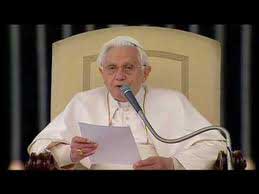 Vatican City, 15 February 2012 Vatican Radio-
Vatican City, 15 February 2012 Vatican Radio-
In his catechesis in Italian, to a packed Paul VI audience hall, the Holy Father said “In our school of prayer last week I spoke about Christ’s prayer on the Cross, taken from Psalm 22 “My God, my God why have you forsaken me”. Now I would like to continue to meditate on the prayers of Jesus on the cross in the imminence of death and today I would like to focus on the narrative that we encounter in the Gospel of St. Luke. The Evangelist has handed down three words of Jesus on the cross, two of which – the first and third – are explicitly prayers to the Father. The second one consists of the promise made to the so-called good thief crucified with him, answering, in fact, the thief’s prayer, Jesus reassures him: “Truly I tell you today will be with me in Paradise” (Lk 23 , 43). The two prayers of the dying Jesus and the acceptance of the repentant sinner’s supplication to Him are suggestively entwined in Luke’s account. Jesus both prays to the Father and hears the prayer of this man who is often called latro poenitens, “the repentant thief.”
Let us dwell on these three prayers of Jesus. The first pronounced immediately after being nailed to the cross, while the soldiers are dividing his garments as sad reward of their service. In a way this gesture closes the process of crucifixion. St. Luke writes: “When they came to the place called the Skull, they crucified him and the criminals there, one on his right, the other on his left. [Then Jesus said, “Father, forgive them, they know not what they do.â€] They divided his garments by casting lots “(23.33 to 34). The first prayer that Jesus addresses to the Father is one of intercession: He asks forgiveness for his executioners. With this, Jesus in person carries out what he had taught in the Sermon on the Mount when he said: ” But to you who hear I say, love your enemies, do good to those who hate you ” (Lk 6:27) and also promised to those who can forgive, “then your reward will be great and you will be children of the Most High ” (v. 35). Now, from the cross, He not only forgives his executioners, but speaks directly to the Father interceding on their behalf.
This is attitude of Jesus’ finds a moving ‘imitation’ in the story of the stoning of St. Stephen, the first martyr. Stephen, in fact, coming to an end, “knelt down and cried with a loud voice:” Lord, do not hold this sin against them”. That said, he died “(Acts 7.60). It was his last word. The comparison of the prayer for forgiveness of Jesus and that of the martyr is significant. Stephen turns to the Risen Lord and calls for his murder – a gesture clearly defined by the expression “this sin” – is not imputed against those who stone him. Jesus addresses the Father on the cross and not only asks for forgiveness for his executioners, but also offers a reading of what is happening. In his words, in fact, the men who crucify him “know not what they do” (Luke 23:34). He gives that ignorance, “not knowing” as the reason for the request for forgiveness from the Father, for this ignorance leaves the way open to conversion, as is the case in the words that the centurion spoke at Jesus’ death: ” This man was innocent beyond doubt”(v. 47), he was the Son of God”. It is a consolation for all times and for all men that the Lord, both for those who really did not know – the killers – and those who knew and condemned him, gives ignorance as the reason for asking for forgiveness – he sees it as a door that can open us up to
repentance “(Jesus of Nazareth, II, 233).
The second prayer of Jesus on the cross as told by St. Luke is a word of hope, is His answer to the prayer of one of the two men crucified with Him. The good thief before Jesus returned to himself and repents, he feels himself to be before the Son of God, who reveals the Face of God, and prays: “Jesus, remember me when you come into your kingdom” (v. 42). The Lord’s answer to this prayer goes far beyond the supplication, he says: ” Amen, I say to you, today you will be with me in Paradise” (v. 43). Jesus is aware of entering directly into communion with the Father and of reopening the path for the man to God’s paradise. So through this response gives the firm hope that the goodness of God can touch us even at the last moment of life and that sincere prayer, even after a life of wrong, meets the open arms of the good Father who awaits the return of his son.
“no matter how hard the trial, difficult the problem, heavy the suffering, we never fall from the hands of Godâ€
Tags: catholic, catholic podcast, catholic prayer, cathollc spirituality, pope benedict xvi, prayer
This entry was posted on Wednesday, February 15th, 2012 at 10:05 pm
You can follow any responses to this entry through the RSS 2.0 feed.
Episode 5- The School of Prayer: Reflections on the teachings of Pope Benedict XVI –   What is the authentic understanding of “intercession” in the context of prayer.  Moses speaks to God as friend.  The invisibility of God  puts deep questions in our hearts.  Unless we have the intimacy of relationship with God in our hearts, our fear will overwhelm our faith.  We also lose patience when waiting for God.  “Waiting” is a dangerous period for human beings; it is literally suffering for us.  The virtue of patience is the remedy.  “Waiting” causes us to run to other diversions…it happens in worship.  “Where are you”  “Are you real?” “Can I believe what is in the Word?” “Please help me.”  If we go deep into our hearts, the content of our waiting becomes the occasion for our intimacy.  But if we just feel the pain of waiting, we will go looking for lost gods.  It comes down to trust.  The role of our memory is so important. [powerpress] Deacon James Keating, PhD, the director of Theological Formation for the Institute for Priestly Formation, located at Creighton University, in Omaha. From  Pope Benedict’s 5 audience on prayer:
What is the authentic understanding of “intercession” in the context of prayer.  Moses speaks to God as friend.  The invisibility of God  puts deep questions in our hearts.  Unless we have the intimacy of relationship with God in our hearts, our fear will overwhelm our faith.  We also lose patience when waiting for God.  “Waiting” is a dangerous period for human beings; it is literally suffering for us.  The virtue of patience is the remedy.  “Waiting” causes us to run to other diversions…it happens in worship.  “Where are you”  “Are you real?” “Can I believe what is in the Word?” “Please help me.”  If we go deep into our hearts, the content of our waiting becomes the occasion for our intimacy.  But if we just feel the pain of waiting, we will go looking for lost gods.  It comes down to trust.  The role of our memory is so important. [powerpress] Deacon James Keating, PhD, the director of Theological Formation for the Institute for Priestly Formation, located at Creighton University, in Omaha. From  Pope Benedict’s 5 audience on prayer:
“Tired of following a path with a God who is invisible now that Moses the mediator has also gone, the people demand a tangible, palpable presence of the Lord and find an accessible god, within the reach of human beings, in Aaron’s molten metal calf. This is a constant temptation on the path of faith: avoiding the divine mystery by building a comprehensible god that corresponds to our own preconceptions and plansâ€.
 For more information on the “Institute of Priestly Formation†and for other material available by Deacon Keating, just click here
For more information on the “Institute of Priestly Formation†and for other material available by Deacon Keating, just click here 
Don’t forget to pickup a copy of “Communion with Christ†, it is one of the best audio sets on prayer…ever!
Check out Deacon Keating’s “Discerning Heart†page
Tags: catholic, catholic podcast, catholic prayer, cathollc spirituality, creighton university, institute for priestly formation, james keating, pope benedict, pope benedict xvi
This entry was posted on Monday, February 13th, 2012 at 10:58 am
You can follow any responses to this entry through the RSS 2.0 feed.
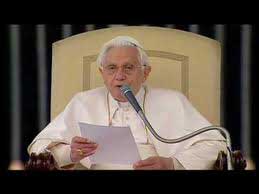
Vatican City, 8 February 2012 (VIS) – The prayer of Jesus at the moment of His death, as narrated by St. Mark and St. Matthew was the theme of Benedict XVI’s catechesis during his general audience, held this morning in the Paul VI Hall.
Yet, the Holy Father asked, “what is the meaning of Jesus’ prayer? The cry addressed to the Father: ‘my God, my God, why have you 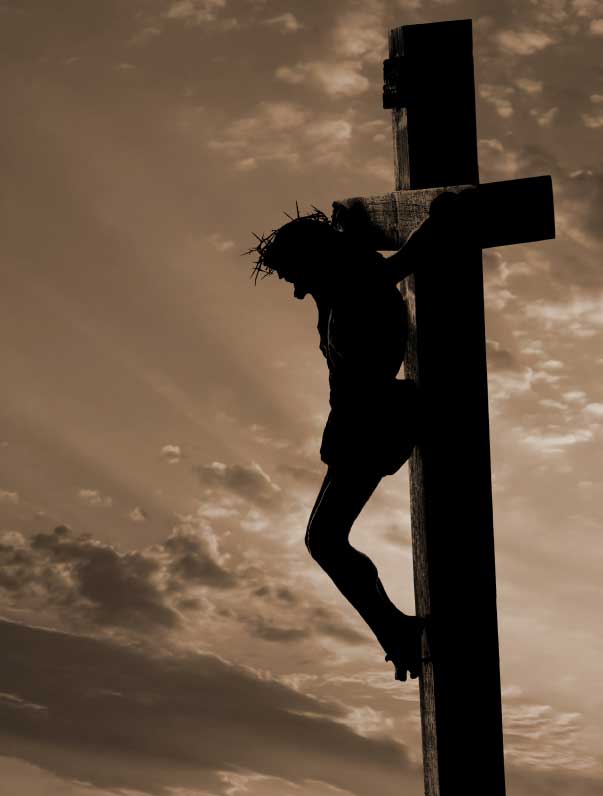 forsaken me?'” He explained that “the words Jesus addresses to the Father are the beginning of Psalm 22, in which the Psalmist expresses the tension between, on the one hand, being left alone and, on the other, the certain knowledge of God’s presence amongst His people. … The Psalmist speaks of a ‘cry’ to express all the suffering of his prayer before the apparently absent God. At moments of anguish prayer becomes a cry.
forsaken me?'” He explained that “the words Jesus addresses to the Father are the beginning of Psalm 22, in which the Psalmist expresses the tension between, on the one hand, being left alone and, on the other, the certain knowledge of God’s presence amongst His people. … The Psalmist speaks of a ‘cry’ to express all the suffering of his prayer before the apparently absent God. At moments of anguish prayer becomes a cry.
“This also happens in our own relationship with the Lord”, the Pope added. “In the face of difficult and painful situations, when it seems that God does not hear, we must not be afraid to entrust Him with the burden we are carrying in our hearts, we must not be afraid to cry out to Him in our suffering”.
“Jesus prays at the moment of ultimate rejection by man, at the moment of abandonment. However, He is aware that God the Father is present even at the instant in which He is experiencing the human drama of death. Yet nonetheless, a question arises in our hearts: how is it possible that such a powerful God does not intervene to save His Son from this terrible trial?”
The Holy Father explained that “it is important to understand that the prayer of Jesus is not the cry of a person who meets death with desperation, nor that of a person who knows he has been abandoned. At that moment Jesus appropriates Psalm 22, the Psalm of the suffering people of Israel, at that moment He takes upon Himself not only the suffering of His people, but also that of all men and women oppressed by evil. … And He takes all this to the heart of God in the certainty that His cry will be heard in the resurrection. … His is a suffering in communion with us and for us, it derives from love and carries within itself redemption and the victory of love.
“The people at the foot of Jesus’ cross were unable to understand, they thought His cry was a supplication to Elijah. … We likewise find ourselves, ever and anew, facing the ‘today’ of suffering, the silence of God – many times we say as much in our prayers – but we also find ourselves facing the ‘today’ of the Resurrection, of the response of God Who took our sufferings upon Himself, to carry them with us and give us the certain hope that they will be overcome”.
“In our prayers”, the Holy Father concluded, “let us bring God our daily crosses, in the certainty that He is present and listens to us. The cry of Jesus reminds us that in prayer we must cross the barrier of ‘self’ and our own problems, and open ourselves to the needs and sufferings of others. May the prayer of the dying Jesus on the cross teach us to pray with love for so many brothers and sisters who feel the burden of daily life, who are experiencing moments of difficulty, who suffer and hear no words of comfort, that they may feel the love of God Who never abandons us.
Tags: catholic, catholic podcast, catholic prayer, cathollc spirituality, pope benedict xvi, psalm 22
This entry was posted on Wednesday, February 8th, 2012 at 8:21 am
You can follow any responses to this entry through the RSS 2.0 feed.
Episode 4- The School of Prayer: Reflections on the teachings of Pope Benedict XVI –   Jacob wrestling with Angel.  The mystery of the name.  We have to let God ask us who we are or will you resist and remain isolated?  Our prayer is only going to be fruitful if we surrender ourselves to the question…who are you?  Like  Jacob, once we give over our name then God can begin to transfigure that name, or in other words, our persons to be more inline with His will, His love, His power.  Eventually, in prayer, we have to enter into the struggle…what is really going on in our souls, in our hearts and are our wrestling with God’s love.   We yield our identity to God’s love.
Jacob wrestling with Angel.  The mystery of the name.  We have to let God ask us who we are or will you resist and remain isolated?  Our prayer is only going to be fruitful if we surrender ourselves to the question…who are you?  Like  Jacob, once we give over our name then God can begin to transfigure that name, or in other words, our persons to be more inline with His will, His love, His power.  Eventually, in prayer, we have to enter into the struggle…what is really going on in our souls, in our hearts and are our wrestling with God’s love.   We yield our identity to God’s love.
The wounding of Jacob by the Angel. Â It is the symbol of the wound, the opening of the self, which symbolizes an entryway to vulnerability…God is deeply affecting us. Â God’s love, concern, and fascination with us is how He enters into our being and “wounds” us. Â If we could “be still” and allow Him to love us, He becomes victorious within us.
The name we yield to God is our heart…the core of our being.  At Baptism, we give over our name, so we give the power over to God over us.  How the “wrestling occurs” and if we stay in it long enough God “wounds” us, into His hands we commend our “spirits”.  How does Jesus transform even this event?
[powerpress]
Deacon James Keating, PhD, the director of Theological Formation for the Institute for Priestly Formation, located at Creighton University, in Omaha.
From  Pope Benedict’s 4 audience on prayer:
Dear brothers and sisters, our entire lives are like this long night of struggle and prayer, spent in desiring and asking for God’s blessing, which cannot be grabbed or won through our own strength but must be received with humility from him as a gratuitous gift that ultimately allows us to recognize the Lord’s face. And when this happens, our entire reality changes; we receive a new name and God’s blessing. And, what is more: Jacob, who receives a new name, and becomes Israel, also gives a new name to the place where he wrestled with God, where he prayed; he renames it Penuel, which means: “The Face of Godâ€. With this name he recognizes that this place is filled with the Lord’s presence, making that land sacred and thus leaving a memorial of that mysterious encounter with God. Whoever allows himself to be blessed by God, who abandons himself to God, who permits himself to be transformed by God, renders a blessing to the world. May the Lord help us to fight the good fight of the faith (cf. 1 Tim 6:12; 2 Tim 4:7) and to ask, in prayer, for his blessing, that he may renew us in the expectation of beholding his Face. Thank you.
For more information on the “Institute of Priestly Formation†and for other material available by Deacon Keating, just click here
Don’t forget to pickup a copy of “Communion with Christ†, it is one of the best audio sets on prayer…ever!
Check out Deacon Keating’s “Discerning Heart†page
Tags: catholic, catholic podcast, catholic prayer, cathollc spirituality, jacob, james keating, pope benedict, pope benedict xvi, prayer
This entry was posted on Sunday, February 5th, 2012 at 2:12 pm
You can follow any responses to this entry through the RSS 2.0 feed.
VATICAN CITY, 1 FEB 2012 (VIS) – This morning in the Paul VI Hall the Holy Father received thousands of pilgrims from around the world in his weekly general audience. As part of a series of catecheses dedicated to the prayers pronounced by Christ, he focused his remarks on Jesus’ prayer in the Garden of Gethsemane.
Mark the Evangelist narrates how, following the Last Supper, Jesus went to the Mount of Olives and readied Himself for personal prayer. “But this time”, the Pope said, “something new occurred; it seemed that He did not want to remain alone. Many times in the past Jesus had moved away from the crowds, even from His own disciples. … However, in Gethsemane he invited Peter, James and John to stay close by; the same disciples who had accompanied Him during the Transfiguration.
“The proximity of these three during the prayer at Gethsemane is significant”, Benedict XVI added. It represents “a request for solidarity at the moment in which He felt the approach of death. Above all it was a closeness in prayer, an expression of unity with Him at the moment in which He was preparing to accomplish the Father’s will to the end, an invitation to all disciples to follow Him on the path of the Cross”.
Jesus’ words to the three disciples – “I am deeply grieved, even to death; remain here and keep awake” – show that He was feeling “fear and anguish at that ‘Hour’, experiencing the ultimate profound solitude as God’s plan was being accomplished. Jesus fear and anguish comprehend all the horror that man feels at the prospect of his own death, its inexorable certainty and the perception of the burden of evil which affects our lives”.
Having invited His disciples to keep awake, Jesus moved away from them. Referring to the Gospel of St. Mark, the Pope noted that Jesus “threw Himself to the ground: a position for prayer which expresses obedience to the Father’s will, an abandonment of self with complete trust in Him”. Jesus then asks the Father that, if possible, the hour might pass from Him. “This is not just the fear and anguish of man in the face of death”, the Holy Father explained, “but the distress of the Son of God Who sees the terrible accumulation of evil He must take upon Himself, in order to overcome it and deprive it of power”.
In this context, Benedict XVI invited the faithful to pray to God, placing before Him “our fatigue, the suffering of certain situations and of certain days, our daily struggle to follow Him and to be Christians, and the burden of evil we see within and around us, that He may give us hope, make us aware of His closeness and give us a little light on life’s journey”.
Returning then to Jesus’ prayer, the Pope focused on “three revealing passages” in Christ’s words: “Abba, Father, for you all things are possible; remove this cup from me; yet, not what I want but what you want”. Firstly, Benedict XVI said, the Aramaic word “Abba” is used by children to address their fathers, “therefore it express Jesus relationship with God the
Father, a relationship of tenderness, affection and trust”. Secondly, Jesus’ words contain an acknowledgment of the Father’s omnipotence “introducing a request in which, once again, we see the drama of Jesus’ human will in the face of death and evil. … Yet the third expression … is the decisive one, in which the human will adheres fully to the divine will. … Jesus tells us that only by conforming their will to the divine will can human beings achieve their true stature and become ‘divine’. … This is what Jesus does in Gethsemane. By transferring human will to the divine will the true man is born and we are redeemed”.
When we pray the Our Father “we ask the Lord that ‘your will be done, on earth as it is in heaven’. In other words, we recognise that God has a will for us and with us, that God has a will for our lives and, each day, this must increasingly become the reference point for our desires and our existence. We also recognise that … ‘earth’ becomes ‘heaven’ – the place where love, goodness, truth and divine beauty are present – only if the will of God is done”.
In our prayers “we must learn to have greater trust in Divine Providence, to ask God for the strength to abandon our own selves in order to renew our ‘yes’, to repeat to Him ‘your will be done’, to conform our will to His. This is a prayer we must repeat every day, because it is not always easy to entrust oneself to the will of God”.
The Gospel says that the disciples were unable to remain awake for Christ, and Pope Benedict concluded his catechesis by saying: “Let us ask the Lord for the power to keep awake for Him in prayer, to follow the will of God every day even if He speaks of the Cross, to live in ever increasing intimacy with the Lord and bring a little of God’s ‘heaven’ to this ‘earth'”.
Following the catechesis the Holy Father delivered greetings in a number of languages to the pilgrims filling the Paul VI Hall. They included a group of British military chaplains, faithful from Hong Kong and South America, bishops friends of the Sant’Egidio Community from Europe, Asia and Africa, as well as young people and the sick.
AG/ VIS 20120201 (940)
Tags: benedict xvi, catholic, catholic podcast, catholic prayer, cathollc spirituality, pope benedict, pope benedict xvi, prayer
This entry was posted on Saturday, February 4th, 2012 at 12:55 am
You can follow any responses to this entry through the RSS 2.0 feed.
On the afternoon of Wednesday 2nd of February , Feast of the Presentation of the Lord , Pope Benedict XVI will preside over vespers in Saint Peter’s Basilica at 5.30 pm.
[powerpress = “Vatican_Radio”]
In an effort to prepare for this evening celebration , on this day which is also dedicated to the XVI World Day of Consecrated Life we bring you a musical meditation focusing on the Presentation: “Mary and Joseph came to the Temple to present the Child Jesus to the Lord as the Law required.The Fourth Joyful Mystery of the Rosary focuses on the Presentation in the Temple. We celebrate it liturgically forty days after Christmas on the Feast of Candlemas , when we process with lighted candles , bearing witness before the world to the light of Christ”.
In this programme presented by music historian Monsignor Philip Whitmore you can listen to a setting of the Magnificat antiphon for the first vespers of the Feast of the Presentation by Catholic composer in the reign of Queen Elizabeth I , William Byrd.
A programme produced by Veronica Scarisbrick .
Tags: catholic, catholic podcast, catholic prayer, cathollc spirituality, musical meditation, pope benedict xvi, presentation in the temple, Vatican Radio From Vatican Radio
This entry was posted on Thursday, February 2nd, 2012 at 7:02 am
You can follow any responses to this entry through the RSS 2.0 feed.
Episode 3- The School of Prayer: Reflections on the teachings of Pope Benedict XVI –   Abraham the great Patriarch who prays in intercession for Sodom and Gomorrah.  The mystery of intercessory prayer and God’s great mercy.  When we persist in prayer, like Abraham, the more we come to know God and trust in His love for us.  How sin corrupts our capacity to receive God’s movement of protection and love.  How the sacrifice of Christ opens the door to the mystery.  If we can learn how to pray, then we learn how to be loved.  How do we pray for others?
Abraham the great Patriarch who prays in intercession for Sodom and Gomorrah.  The mystery of intercessory prayer and God’s great mercy.  When we persist in prayer, like Abraham, the more we come to know God and trust in His love for us.  How sin corrupts our capacity to receive God’s movement of protection and love.  How the sacrifice of Christ opens the door to the mystery.  If we can learn how to pray, then we learn how to be loved.  How do we pray for others?
[powerpress]
Deacon James Keating, PhD, the director of Theological Formation for the Institute for Priestly Formation, located at Creighton University, in Omaha.
From  Pope Benedict’s 3 audience on prayer:
This is the power of prayer. For through intercession, the prayer to God for the salvation of others, the desire for salvation which God nourishes for sinful man is demonstrated and expressed. Evil, in fact, cannot be accepted, it must be identified and destroyed through punishment: The destruction of Sodom had exactly this function.
For more information on the “Institute of Priestly Formation†and for other material available by Deacon Keating, just click here
Don’t forget to pickup a copy of “Communion with Christ†, it is one of the best audio sets on prayer…ever!
Check out Deacon Keating’s “Discerning Heart†page
Tags: catholic, catholic podcast, catholic prayer, cathollc spirituality, james keating, pope benedict, pope benedict xvi
This entry was posted on Monday, January 30th, 2012 at 8:47 am
You can follow any responses to this entry through the RSS 2.0 feed.

VATICAN CITY, 25 JAN 2012 (VIS) –
Benedict XVI dedicated his catechesis during this morning’s general audience to Christ’s priestly prayer during the Last Supper, as narrated in chapter 17 of the Gospel of St. John. In order to understand this prayer “in all its immense richness”, said the Pope, it is important to see it in the context of the Jewish feast of atonement, Yom Kippur, in which the high priest seeks atonement first for himself, then for the order of priests and finally for the community as a whole. Likewise, “that night Jesus addressed the Father at the moment in which He offered Himself. He, priest and victim, prayed for Himself, for the Apostles and for all those who would believe in Him”.
The prayer which Jesus prays for Himself is the request for His own glorification. “It is in fact more than a request”, the Holy Father said, “it is a declaration of willingness to enter freely and generously into the Father’s plan, which is accomplished through death and resurrection. …
Jesus begins His priestly prayer by saying: ‘Father, the hour has come; glorify your Son so that your Son may glorify you’. The glorification Jesus seeks for Himself, as High Priest, is to be fully obedient to the Father, an obedience which leads Him to fulfil His filial status: ‘So now, Father, glorify me in your own presence with the glory that I had in your presence before the world existed'”.
The second part of Jesus’ prayer is His intercession for the disciples who have followed Him, and His request that they may be sanctified. Jesus says: ‘They do not belong to the world, just as I do not belong to the world. Sanctify them in the truth’. Benedict XVI explained how “To sanctify means to transfer something – a person or an object – to God. This involves two complementary aspects: on the one hand, the idea of ‘segregation’ … from man’s personal life in order to be completely given over to God; on the other hand there is the idea of ‘being sent out’, of mission. Having been given to God, the consecrated thing or person exists for others. … A person is sanctified when, like Jesus, he is segregated from the world, set aside for God in view of a task and, for this reason, available for everyone. For disciples this means continuing Jesus’ mission”.
In the third phase of the priestly prayer, “Jesus asks the Father to intervene in favour of all those who will be brought to the faith by the mission inaugurated by the Apostles. … ‘I ask not only on behalf of these, but also on behalf of those who will believe in me through their word’. … Jesus prays for the Church in all times, He also prays for us. … The main element in Jesus’ priestly prayer for His disciples is His request for the future unity of those who will believe in Him. This unity is not a worldly achievement. It derives exclusively from divine unity and comes down to us from the Father, through the Son and in the Holy Spirit”.
By this priestly prayer Jesus establishes the Church, “which is nothing other than the community of disciples who, through their faith in Christ as the One sent by the Father, receive His unity and are involved in Jesus’ mission to save the world by leading it to a knowledge of God”.
Benedict XVI invited the faithful to read and meditate upon Jesus priestly prayer, and to pray to God themselves, asking Him “to help us enter fully into the plan He has for each of us. Let us ask Him to consecrate us to Himself, that we may belong to Him and show increasing love for others, both near and far. Let us ask Him to help us open our prayers to the world, not limiting them to requests for help in our own problems, but remembering our fellow man before the Lord and learning the beauty of interceding for others. Let us ask Him for the gift of visible unity among all those who believe in Christ, … that we may be ready to respond to anyone who asks us about the reasons for our hope”.
At the end of his audience, Benedict XVI delivered greetings in various languages to the pilgrims and faithful gathered in the Paul VI Hall, reminding them that today’s Feast of the Conversion of St. Paul marks the end of the Week of Prayer for Christian Unity. Addressing Polish faithful he said: “The conversion of the Apostle of the Gentiles near Damascus is proof that, in the final analysis, it is God Himself Who decides the destiny of His Church. Let us ask Him for the grace of unity, which also requires our individual conversion, while remaining faithful to the truth and love of God”.
AG/Â Â Â Â Â Â Â Â Â Â Â Â Â Â Â Â Â Â Â Â Â Â Â Â Â Â Â VIS 20120125 (826)
Tags: catholic, catholic podcast, catholic prayer, cathollc spirituality, pope benedict xvi
This entry was posted on Thursday, January 26th, 2012 at 12:02 am
You can follow any responses to this entry through the RSS 2.0 feed.

